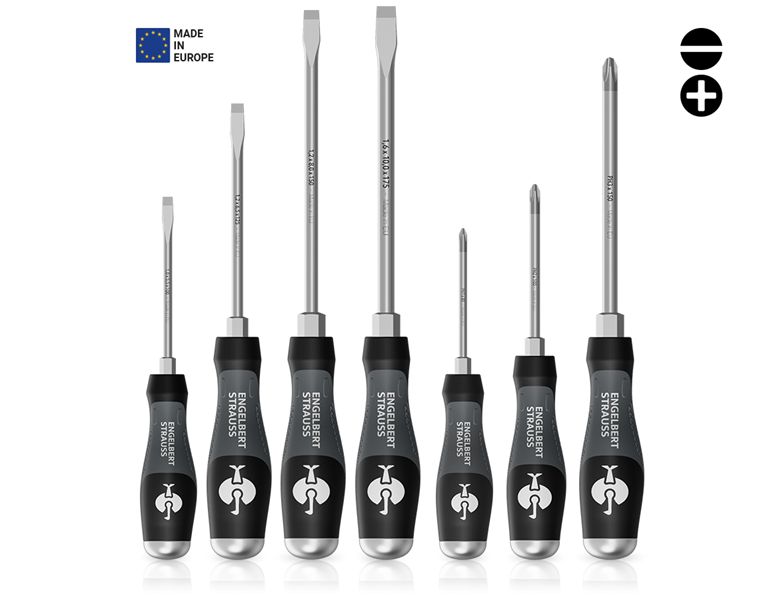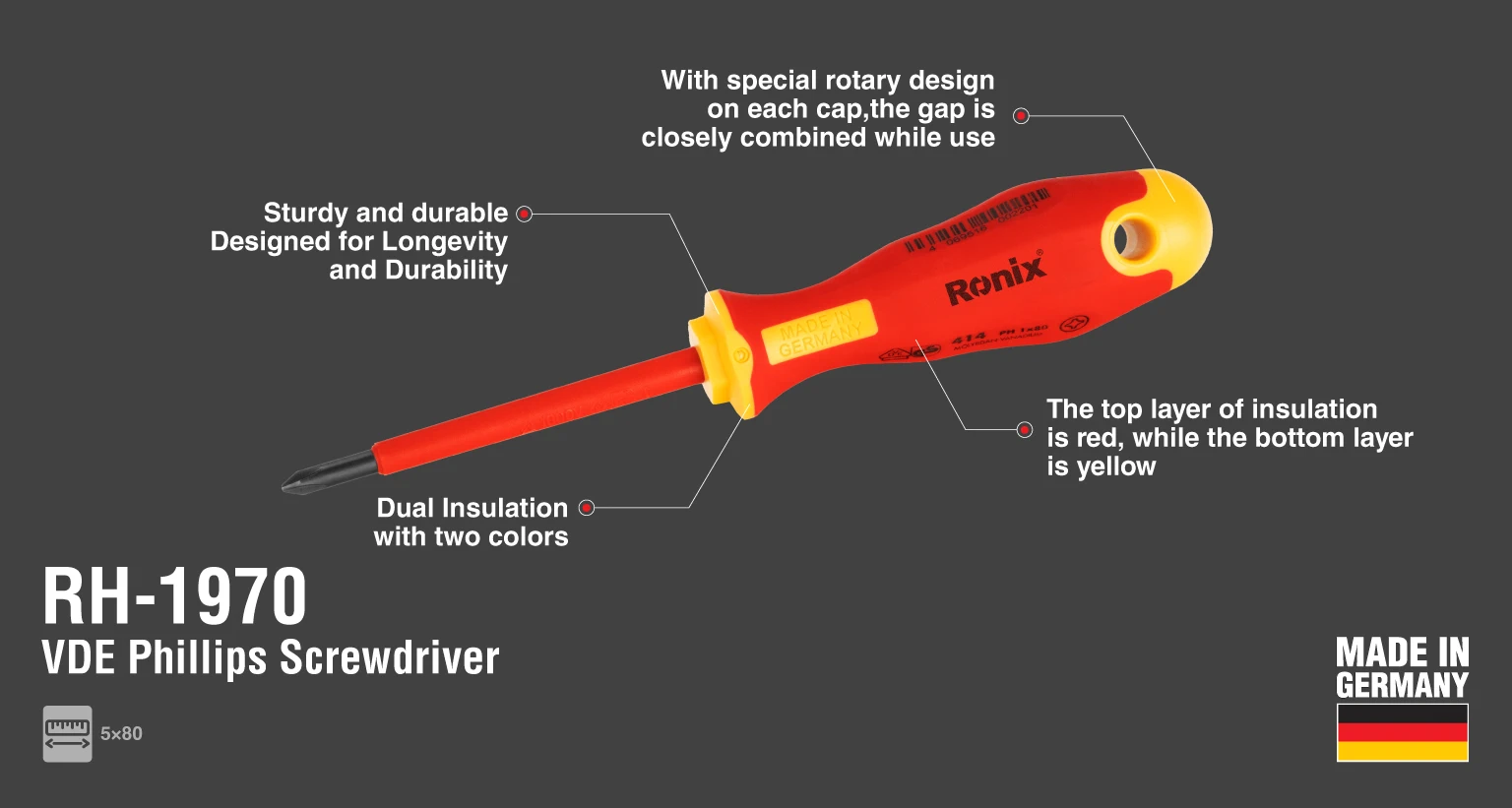When it comes to tackling screws, you might wonder whether a power screwdriver or a manual one is the better choice for your tasks. You want a tool that makes your work easier, faster, and more efficient.
Choosing the right screwdriver can save you time and effort, and even protect your hands from strain. But which one truly fits your needs? You’ll discover the key benefits of power versus manual screwdrivers, helping you decide which tool will boost your productivity and make your projects more enjoyable.
Keep reading—you’re about to find out what can make a real difference in your DIY or professional work.

Credit: www.strauss.com
Speed And Efficiency
Choosing the right screwdriver affects how fast and well you work. Power and manual screwdrivers offer different speeds and efficiency levels.
Understanding these differences helps you pick the best tool for your task.
Time Savings With Power Screwdrivers
Power screwdrivers finish tasks much faster than manual ones. They use electric motors to turn screws quickly and with less effort.
This speed helps save time, especially in big projects with many screws to fix.
- Fast rotation speeds reduce work time
- Less physical effort means quicker job completion
- Consistent torque prevents screw damage and rework
- Rechargeable models allow continuous use without breaks
Manual Screwdrivers And Slower Work Pace
Manual screwdrivers require more time and effort to use. You turn screws by hand, which can be tiring and slow.
This slower pace makes manual screwdrivers less efficient for large jobs or tight schedules.
- Work depends on user strength and speed
- More breaks needed due to hand fatigue
- Less consistent pressure can cause mistakes
- Better for small jobs or delicate tasks
Effort And Fatigue
Using screwdrivers takes physical effort and can cause tiredness. The type of screwdriver affects how much energy you use.
Power screwdrivers can lower the effort needed. Manual screwdrivers may increase fatigue over time.
Reduced Physical Strain Using Power Tools
Power screwdrivers do most of the work for you. They reduce the force your hands and wrists must use.
This helps keep your muscles relaxed and lowers the chance of pain. You can work longer without feeling tired.
- Less hand strength required
- Faster screw insertion
- Lower risk of joint strain
- Better control with less effort
Challenges Of Extended Manual Use
Manual screwdrivers need more hand and wrist force. This causes muscles to work hard for a long time.
Using them for many screws can lead to tiredness and soreness. It may also cause cramps or stiffness.
- Hand and wrist fatigue
- Muscle soreness after long use
- Slower work speed
- Higher chance of mistakes due to tiredness
Precision And Control
Choosing the right screwdriver affects how precise and controlled your work is. Power and manual screwdrivers offer different benefits in these areas.
Understanding these differences helps you pick the best tool for your task. This guide focuses on precision and control.
Consistent Torque With Power Screwdrivers
Power screwdrivers apply the same amount of force each time. This consistency helps avoid over-tightening or stripping screws.
They have adjustable torque settings for different materials. This control improves the accuracy of fastening.
- Prevents damage to screws and materials
- Speeds up repetitive tasks
- Improves overall work quality
Accuracy Limitations Of Manual Tools
Manual screwdrivers depend on user strength and skill. This can lead to uneven tightening and less control.
It is harder to maintain steady pressure with manual tools. This may cause screws to go in crooked or too loose.
- Risk of stripping screws from too much force
- Inconsistent torque on each screw
- Slower work on large projects

Credit: ronixtools.com
Versatility And Applications
Power and manual screwdrivers both help with screwing tasks. Each tool suits different jobs. Understanding their uses saves time and effort.
Power screwdrivers offer speed and strength. Manual screwdrivers give control and precision. Let’s explore their versatility and where to use them.
Power Screwdrivers In Complex Projects
Power screwdrivers work well in big or tough projects. They drive screws quickly and handle hard materials. This helps finish tasks faster.
They are useful for assembling furniture, building decks, and installing drywall. Their adjustable speed and torque fit many screw types.
- Fast driving reduces fatigue
- Good for many screw sizes
- Useful on hard surfaces like wood and metal
- Ideal for repetitive screwing tasks
Best Uses For Manual Screwdrivers
Manual screwdrivers work best in small or detailed jobs. They let you feel the screw’s movement and avoid damage.
Use manual screwdrivers for electronics, tight spaces, and delicate materials. They are also good for quick fixes and adjustments.
- Precise control in small tasks
- Fits into tight or awkward spaces
- Prevents over-tightening screws
- Simple and easy to carry
Cost And Maintenance
Choosing between power and manual screwdrivers depends on cost and upkeep. Each type has different expenses and care needs.
Knowing these differences helps you pick the right tool for your budget and use.
Investment And Upkeep Of Power Tools
Power screwdrivers cost more to buy than manual ones. They need batteries or electricity to work.
Regular maintenance keeps them running well. This includes charging batteries and cleaning parts.
- Initial cost includes charger and batteries
- Battery replacement adds to long-term cost
- Keep tools clean to avoid damage
- Occasional repairs may be needed
- Store in a dry place to protect parts
Affordability And Simplicity Of Manual Tools
Manual screwdrivers are cheaper to buy. They do not need batteries or power sources.
These tools need less care. Cleaning and storing them properly is usually enough.
- Low initial cost
- No need for batteries or chargers
- Simple design means fewer repairs
- Easy to clean with a cloth
- Store in a toolbox to avoid rust

Credit: fanttik.com
Safety Considerations
Using screwdrivers requires attention to safety. Power and manual types have different risks.
Knowing these differences helps prevent accidents and injuries while working.
Risks Associated With Power Screwdrivers
Power screwdrivers can spin fast and cause hand injuries. They may slip and damage surfaces.
Electric shocks can happen if the tool is damaged or used near water.
- Risk of cuts or punctures from the spinning bit
- Possible electric shock if tool insulation fails
- Hand fatigue from vibration during long use
- Damage to materials if the screwdriver slips
Manual Screwdrivers And Safer Handling
Manual screwdrivers work at your speed, giving better control. This reduces slipping risks.
They do not use electricity, so electric shock is not a concern.
- Lower chance of hand injuries due to slower speed
- No risk of electric shock
- Easy to feel resistance and stop if needed
- Recommended for delicate or precise tasks
Frequently Asked Questions
What Are The Main Advantages Of Power Screwdrivers?
Power screwdrivers save time and reduce physical effort. They provide consistent torque and speed, making tasks faster and easier. They are ideal for repetitive jobs and hard materials, improving overall efficiency compared to manual screwdrivers.
How Do Manual Screwdrivers Benefit Users?
Manual screwdrivers offer precision and control for delicate tasks. They are lightweight, easy to carry, and require no power source. They are perfect for small repairs and tight spaces where power tools might be cumbersome.
Are Power Screwdrivers Suitable For Beginners?
Yes, power screwdrivers are user-friendly and require minimal skill. Many models come with adjustable torque settings to prevent damage. Beginners can complete projects quickly with less strain, making them ideal for DIY enthusiasts.
When Should I Choose A Manual Screwdriver Over Power?
Choose manual screwdrivers for small, precise jobs and tight spaces. They offer better control and reduce the risk of over-tightening. Manual tools are also useful when working without electricity or on delicate materials.
Conclusion
Choosing between power and manual screwdrivers depends on your needs. Power screwdrivers save time and reduce effort. They are ideal for frequent or heavy tasks. Manual screwdrivers offer control and precision for delicate work. They are also more affordable and portable.
Consider the task type and frequency before deciding. Both tools have unique advantages. Having both in your toolkit can be beneficial. This way, you’re always prepared. For any project, big or small.
7 min read

